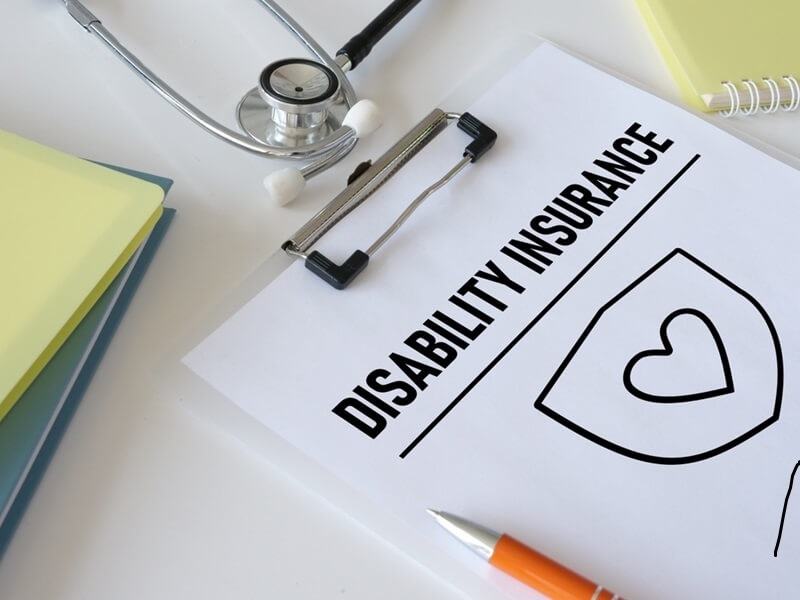
When folks think about insurance, they often see health and life plans first. However, one key type that tends to get missed is disability insurance. This help can mean the split between staying steady and facing big money troubles if you can't work due to sickness or injury. In short, disability insurance fills in your earnings when your paycheck stops.
This blog makes disability insurance easy to get and shows why it's key for most.
At its base, disability insurance aims to fill part of your income if you can't work due to health issues. See it as a money backup for your earnings. Some may think only big accidents count, but most claims are for illnesses like cancer, heart issues, or long-term back pain, not just sudden hurts.
When you get the clear facts on disability insurance, you'll note it works like other insurance types. You pay set money amounts, and if a covered disability stops you from working, the insurance pays you money. This money helps with key costs like house bills, food, and other needs so you can heal without stress on cash.
Digging into choices, you'll see short-term vs long-term disability insurance. How long you receive assistance is the most important difference.
Some jobs offer short-term help, but long-term coverage often needs you to get it on your own. Knowing the two types helps you pick what fits with your job, life, and money plans.

Let's look at how disability insurance helps in real cases. Say a health problem stops you from working for months. If covered, you make a claim with your insurer. This usually needs a doctor's note. Once okayed, the insurer starts paying you after a wait time called the elimination period.
This wait can be days for short-term plans, to months for long-term ones. You might need to use savings or sick leave while waiting. Later, the insurer pays you part of your last income, about 50% to 70%, until you're back at work or the coverage ends.
This way, folks see how simple yet key this system is. It's about keeping income flow if your earnings stop.
A big misconception is that only high-risk job folks need this. However, disability can strike anyone, no matter what their job is. Thus, it's worth asking: who needs disability insurance?
In looking at who needs disability insurance, the simple truth is that almost anyone relies on their pay for daily life.
Without disability insurance, the loss of money from no income can be hard. Sudden sickness or hurt could mean not paying rent, falling behind on bills, or using up savings or pension money. Most money experts say an emergency fund won't last long. Without a steady income, debts rise fast.
Having disability insurance in place shows that it bridges the gap between short-term savings and ongoing stability. Even if you have health insurance, recall that it only covers health bills, not daily costs. That’s where disability insurance steps in.
A lot of folks put off buying disability insurance as they think it's too much money. Yet, there are low-cost plans out there that fit many budgets. The cost you pay each month changes based on things like your age, health, job, and how much coverage you want.
You can drop costs by:
Knowing how to find low-cost disability insurance lets you get key coverage without making your monthly budget tight.
There are a few myths that keep people from getting it. Let's clear them up:
Health trouble can show up out of nowhere, and most issues that cause disability come from illness, not accidents.
This kind of insurance only helps if the issue comes from the job, leaving out lots of other health problems.
With low-cost plans out there, you can find coverage that fits what you can afford.
Even good savings can disappear fast if you can't work for months or years. Insurance helps keep your savings safe.
Breaking these myths is key when explaining disability insurance well.
Many folks first see disability coverage at work. While this is a great perk, these plans often offer less money or cover less time. On the other hand, your own disability insurance can be structured to provide more money and last longer.
Job plans are a good starting point, but you may want to consider additional personal coverage for the protection of your total income.
While you are considering the future of your money, it is important to account for surprises. Disability insurance should be viewed as one part of a larger plan that also includes health insurance, life insurance, and saving for retirement. It keeps your money plan whole, in fact, and the possibility of anything becoming an obstacle.
Think about it like you are setting up a safety net for your work life. By getting coverage now you are protecting your immediate needs and your distant aspirations.
The value of disability insurance is huge. It's not just about replacing lost money; it brings peace of mind. Knowing you can keep up your life and help your family even if you get sick or hurt keeps you secure.
Getting disability insurance explained well shows it's not just for certain jobs or ages. It's for anyone who counts on their paycheck, which is most working adults. By looking at short vs. long coverage, learning how it works, and seeing who really needs it, folks can choose wisely for their future.
Low-cost plans let you have this shield without hurting your budget. In our unsure world, not having this coverage leaves you open to risks that happen more often than we think.
Disability insurance is a top type of money protection that is often not valued enough. Explaining it simply shows how important it is: it keeps your income safe if you can't work due to health issues. Whether just starting out, backing a family, or looking towards retiring, this insurance keeps your money solid no matter what you face.
In the end, it's about more than just you—it's about guarding your loved ones and the life you've built. If you haven't thought about this coverage yet, now's the time. Disability insurance is more important than many assume, and the sooner you plan for it, the stronger your chances will be.
This content was created by AI